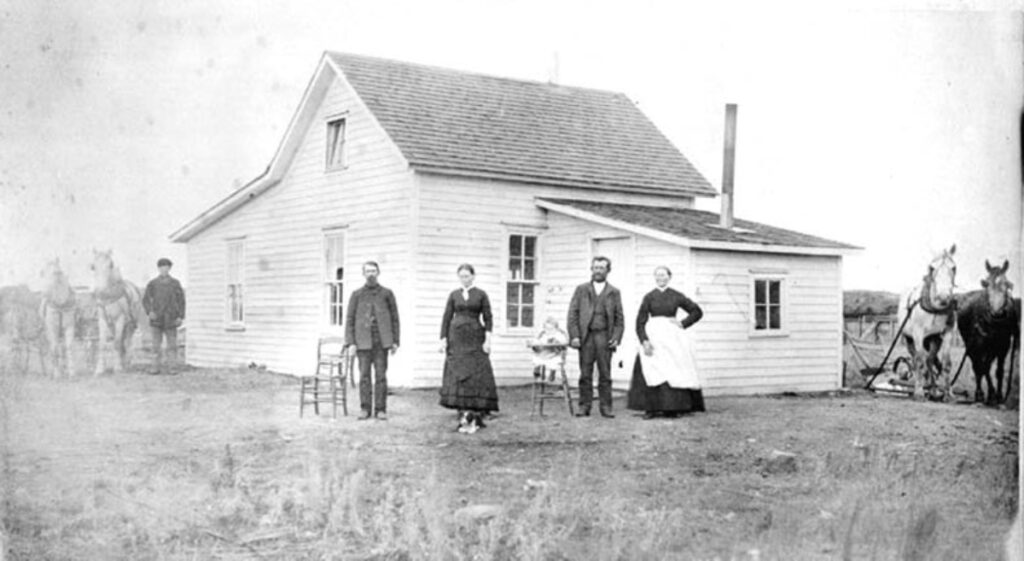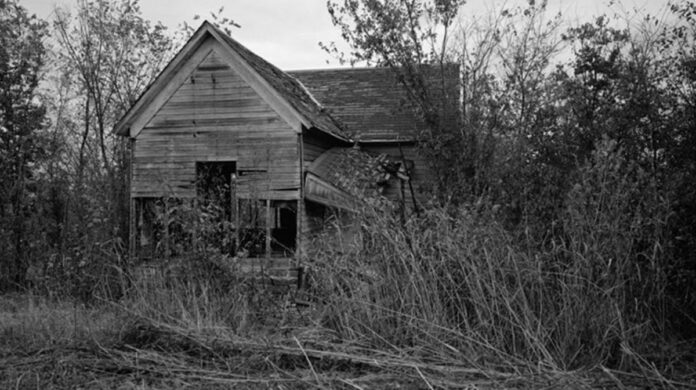Last week as I was leaving a friend’s house, an older man in a 1990s pickup truck pulled off the road and into the driveway where my car was parked. He didn’t look like a threat, so I walked over. He asked me if I knew where he could find the church he heard was giving away canned food and relief supplies. I gave him directions, but I warned him I thought they had stopped their relief efforts.
Most of the walk-in relief centers cut back their hours and then closed because of a lack of customers.
After he listened to my directions, he said he had already been to the church I described, and no one was there. It was, after all, a weekday. I told him the only place for relief supplies I knew was still open was a community center in another part of the county. I warned him they were only open two or three days a week, so he should call before he drove all the way over there. He politely thanked me and drove off.
After he was gone, I felt a bit of guilt and some remorse. I have shelves of canned foods at home, and this guy is just scraping by, looking for canned food. I do not know if he is a storm victim or just a victim of life, living off his social security and not much else. If I’d had eggs with me, I would have given him a dozen right then.
Pride and Charity
At the time, I had $100 in my pocket. Had I thought of it, I could have given him $20 or $40 and sent him off to the Dollar General to buy some groceries. I don’t normally give money to beggars or homeless people, but he wasn’t begging and didn’t look like he was living in his truck. Alternatively, I could have bought him lunch, sat there and talked to him while we ate. Did he know our Department of Social Services could set him up with food stamps?
He was gone on down the road by the time I thought of all this. Later that evening, I realized I could have suggested he go to the Senior Center, where he could get a free lunch and sign up for Meals on Wheels and other services. This county has many elderly squeaking by on fixed incomes in old homes, but it also has services available to help them out. I’ll be better prepared if I have another encounter like this.
Our local mountain people are proud. I can only wonder how he might have reacted to a spontaneous gesture of goodwill. He might have welcomed it. He might have gruffly declined.
I know I am not the only one who had to be convinced to accept help when someone offered it after Helene. I felt like someone else needed it more. The Red Cross said they had plenty of meals for everyone, so I could take it. I did, and I learned when people want to give, they feel good when you accept their help. And people from outside our area gave quite a bit after the storm.
Six months after Helene, repairs have been made. If your house survived, chances are you are back in it. If it didn’t, people need a new house more than they do a hot meal, with this fellow being a possible exception.
Run Down
We live a mile beyond what my neighbor jokingly calls “The Appalachian Historic District.” The road passes through a run-down area with several old and abandoned houses that have suffered the ravages of time. One had someone living in it when we moved here, but the fellow died from COVID. His house has been empty ever since.
All three houses need paint to the point where the gray, weathered wood shows through. The outbuildings look like they were built 100 years ago. The tin roof is ripping off a barn and a piece of it flaps in the wind, no doubt pulling off a bit more with every powerful gust. Nearby, the window on an old spring house is shattered and moss grows on its stone walls, eating away at the mortar. When there are no leaves on the trees, you can see an abandoned farm truck from the 1950s on the other side of the stream. It has a tree growing up where the hood would be, if it still had a hood.
I expect families lived in these houses during the Great Depression, almost 100 years ago. They were probably the kind of folks you see in those old government photos: rail-thin barefoot kids, stern looking parents, and a granny missing a few teeth. They probably had an outhouse and their water was spring water, just like mine. But because they had land, apple trees, berry bushes, a large garden and chickens, if not goats or a cow, they got by. Dad probably took odd jobs and was occasionally hired on by the larger farmers down in the valley. It would have been a hardscrabble life, but it was all they knew. They might not even have known there was a depression; to them, it was just life as normal.

Coming Full Circle
If the SHTF today, we could soon be living a similar hardscrabble life. Oh, we might have more machinery and appliances, as long as the gasoline holds out and the solar power system survives. Our walls will be better insulated and our metal roof newer, but we’ll be counting on the same food sources and heating with the same firewood. Before long, kids will probably be barefoot and wearing cut-down clothes that belonged to someone else before they were handed down to them.
After a nationwide or global disaster, like an EMP, comet strike, or nuclear war, organizations like the Red Cross, Samaritan’s Purse, and the Cajun Navy wouldn’t send volunteers here; they would be needed closer to home. All the local churches that became relief centers here would still do what they can to help folks, but no one would be dropping off pallets of bottled water or truckloads of canned food from outside the area, so their resources will be limited. It would be just neighbor helping neighbor, and not that many neighbors have much to spare.
That’s what I want my readers to realize. You know you need to feed yourself. You might also have to feed a core group of friends and family. But what about the rest of your neighbors? Do you have a plan for that? Can you watch them starve? Will you be able to hide your preps from them? What will you do when they stand outside your house with the traditional pitchforks and torches demanding your food?
Feeding the County
When the trucks stop running and the store shelves empty, the hungry times are will quickly be upon us, and it could be ugly. Desperate people might kill you for the contents of your cupboard.
If you have food, you will have to decide if you can hide your food stores from those who do not. How many people have seen your prepper pantry? Will they betray you, demand you share your food with them or they will tell the mob? Can you shoot a hungry man or woman who gets aggressive and consider it self-defense?
This is one reason we keep our preps quiet. It is also why we live off the beaten track, why our store room is kept locked when we have company, and why some goods are hidden in different areas. But the more people we know, the more difficult it will be to turn them away. And while some will have useful skills and contacts, others will be a drain on resources.
I know I can’t feed the county, but if I kill a deer, I can share the meat with those who live on my road. I can pass extra eggs on to the neighbors, as long as the folks staying with us don’t eat them all. We also have seeds to spare for those who garden, and we can hand out plant starts in the spring and maybe spare a few potatoes or squash later in the year. I imagine we’ll have plenty of zucchini, but while they may fill your belly, they don’t contain many calories.
Self-Reliance
People who survive the immediate global disaster will need to be self-reliant and food self-sufficient if they are to survive the aftermath. Besides stored foods, they will need to raise, grow, harvest, salvage, glean and preserve additional food. This is where a bushcrafter, survivalist, homesteader or prepper can be a resource for their neighbors. Instead of feeding them your stored food, show them edible foods that can be found in the wild. Teach them to make snares and traps. Convince them it is better to eat a raccoon, possum, rat, or pigeon and live than it is to starve because those are no longer considered traditional food sources.
No one is going to live on watercress, wild berries and an occasional rodent, but every calorie helps. It will extend their stored food and bring you one day closer to a recovery or a rescue.
I look back at my experience with the older man searching for canned food and wonder if I will feel differently after the SHTF and there is no food to be found. It is easy to be generous now when I have plenty of food can get more with a quick trip to the store. Will I be as friendly and will he be as polite when a can of Spam is irreplaceable? As much as I might hope so, I doubt it.







